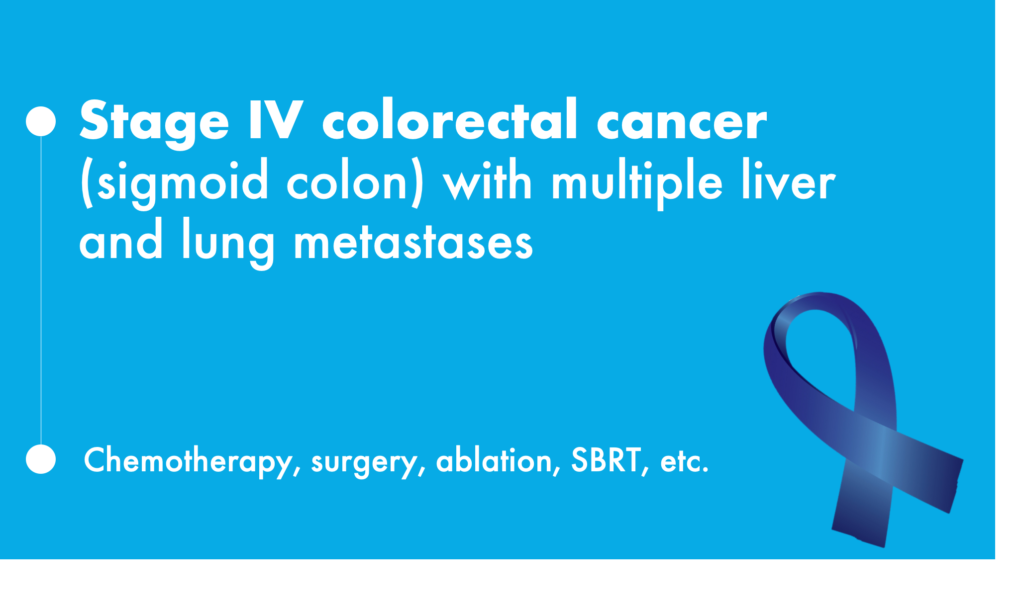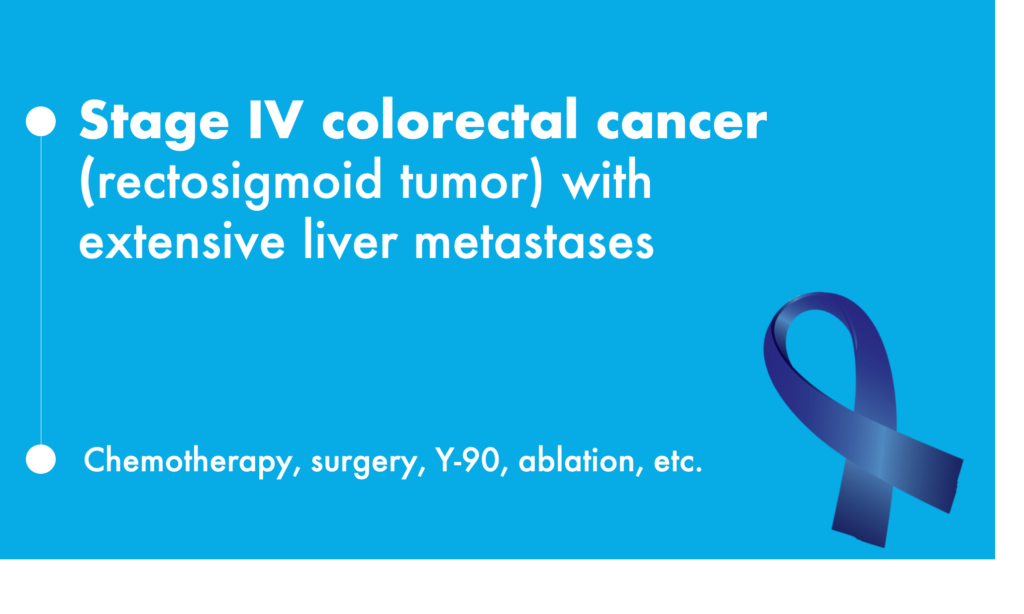Journey of Resilience
Conquering Metastatic Colon Cancer: A Remarkable Case of Complete Remission
How a 73-Year-Old Patient Overcame Advanced Disease with Pembrolizumab Despite a History of GBS
A 73-year-old Caucasian woman was first diagnosed with right-sided colon cancer in early 2015. Her tumor was staged as T3N2aM0, revealing a poor differentiation profile. She initially underwent a right hemicolectomy and completed six months of adjuvant capecitabine. Three months after therapy, a PET/CT scan identified new metastatic lesions in retroperitoneal lymph nodes and a 4.7 cm pelvic mass.
Complicating her treatment options was a significant medical history of Guillain-Barré Syndrome (GBS), managed with monthly IVIG infusions, and a prior diagnosis of ductal carcinoma in situ (DCIS) in remission since 2011. Considering her limited performance status and co-existing neuropathy, the patient received first-line FOLFIRI plus bevacizumab but developed severe fatigue and lower extremity cellulitis after just two cycles.
Meanwhile, genomic profiling revealed a BRAF V600E mutation, microsatellite instability (MSI), and a high tumor mutational burden (73 mutations/MB). With these findings—and her intolerance to chemotherapy—immunotherapy became a compelling option. A careful multidisciplinary discussion addressed her underlying GBS and the theoretical risk of autoimmune flare. Ultimately, she began pembrolizumab (200 mg every three weeks) in May 2016.
Remarkably, over 20 cycles of treatment, the patient experienced only mild worsening of fatigue and myalgias, with no significant GBS exacerbations. She continued to receive maintenance IVIG and had no autoimmune flares. Follow-up imaging displayed a progressive reduction in tumor burden, culminating in complete remission in January 2017. After six months in remission, pembrolizumab was discontinued in July 2017.
As of May 2018, surveillance CT scans and carcinoembryonic antigen (CEA) levels confirmed that she remained in full remission. This case highlights the transformative role of immune checkpoint inhibition for patients harboring MSI-high and BRAF-mutated metastatic colon cancer, even when complicated by autoimmune disorders such as GBS.
Diagnosis
Right-sided colon cancer (T3N2aM0), with progression to metastatic disease and concurrent Guillain-Barré Syndrome
Biomarker profile: BRAF V600E, MSI-high, and high TMB
Treatment
Initial chemotherapy (FOLFIRI + bevacizumab) halted due to toxicity; pembrolizumab therapy
Outcome
Complete remission attained after 20 cycles of pembrolizumab, with no significant GBS flare; patient remains disease-free on ongoing surveillance
Source: Wang, C., Sandhu, J., & Fakih, M. (2019). Complete response to pembrolizumab in a patient with metastatic colon cancer with microsatellite instability and a history of Guillain-Barre syndrome. Journal of Gastrointestinal Oncology, 10(1), 161.


